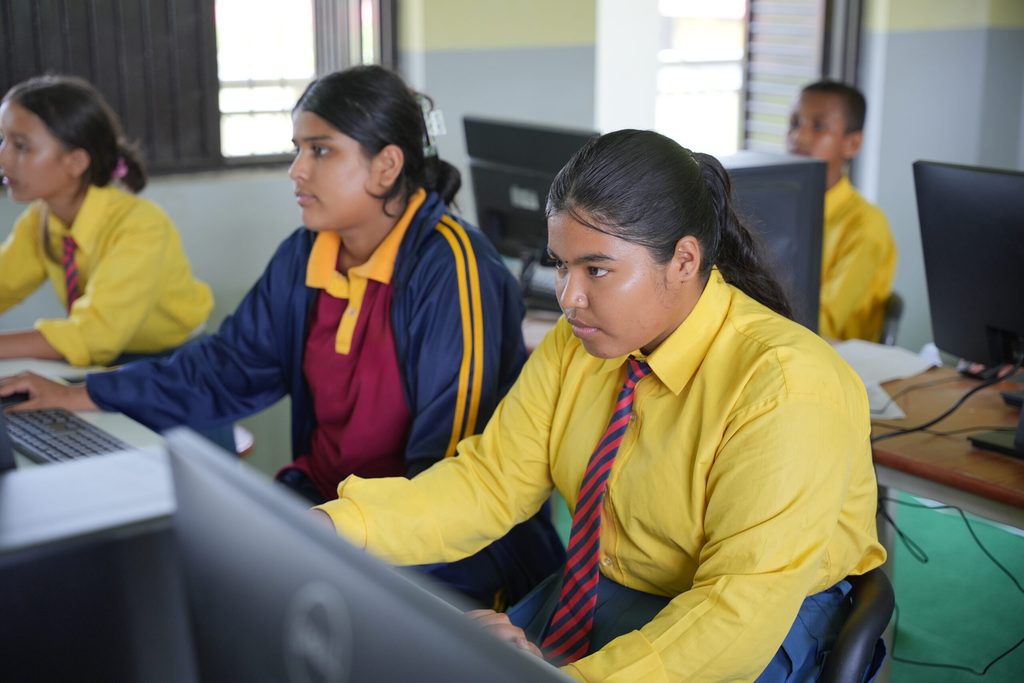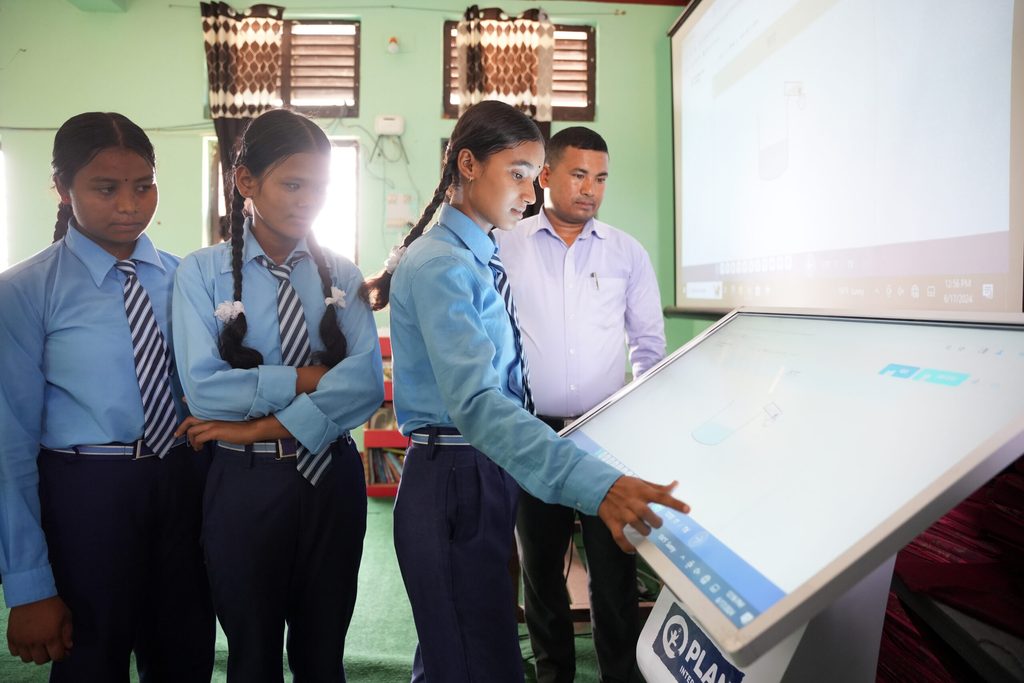Dipsikha’s journey from textbooks to tech
Dipsikha, a grade 10 student from rural Nepal, is exploring computers for the first time through her school’s new Information and Communications Technology (ICT) lab, opening up new ways of learning and dreaming for the future.

Dipsikha, a grade 10 student in a remote Nepalese school, eagerly anticipates her computer classes. Held in a recently established ICT lab, these sessions offer a refreshing change from traditional classroom learning.
For Dipsikha, the opportunity to study Information Technology (IT) was something she never thought would be possible. “Until last year, I had only heard about IT. I didn’t know what it was. But now, I am actually learning about it,” she shares with enthusiasm.
‘Until last year, I had only heard about IT. I didn’t know what it was. But now, I am actually learning about it.”
Dipsikha
ICT labs open up new learning in remote schools
The computer lab is equipped with 14 computers, enabling Dipsikha and her peers to advance their learning. “We now have endless resources at our fingertips to deepen our understanding of different subjects,” she explains.
Her academic performance has noticeably improved, and she is confident that her computer skills will benefit her in the future. “Before, we were limited to textbooks, but now we have the opportunity to learn in other ways.”
Ashish, the school’s science and technology teacher, has noticed that students are becoming more curious. “We teach them how to use the internet, as well as Microsoft Office applications like Paint, Word, and Excel. Every day brings something new, and they’re excited to learn,” he says. The lab not only supports ICT education but also enhances learning in other subjects, enhancing the academic environment.
Principal Prem Prasad describes the ICT lab as a milestone for the school. “The new computer lab has sparked energy and excitement in our students,” he says. Parents in the rural region also appreciate the initiative, noting how it keeps students connected to modern technology.
“The new computer lab has sparked energy and excitement in our students.”
Prem Prasad, Principal
“We are located in a very remote area, yet even here, our students are learning about computers and keeping up to date with the latest technology. I believe this has significantly enriched the learning environment at our school and will undoubtedly improve our students’ academic outcomes,” says the Principal.

Over the past 2 years, Plan International has supported 20 community schools in establishing ICT labs in collaboration with HANDS Nepal and local governments. In addition, 175 teachers have undergone training to integrate ICT into their teaching, thereby developing their technical skills and improving their lesson delivery.
Learning kiosks have also been set up in 2 schools in the Sindhuli and Bardiya districts. These digital platforms store interactive learning materials, including educational games and videos. “The kiosk makes difficult topics fun and easier to understand with its visual and interactive content,” says grade 10 student Parbati.
“The kiosk makes difficult topics fun and easier to understand with its visual and interactive content,”
Parbati, student
Teacher Sagar notes that students are showing a lot of interest in using the learning kiosks. “Students prefer the kiosk’s audio-visual materials to textbooks. They are engaging and spark greater enthusiasm for learning.”
By providing these resources, Plan International is helping to bridge the digital divide and empower students in remote areas of Nepal with the tools and skills they need to thrive in a technology-driven world.


